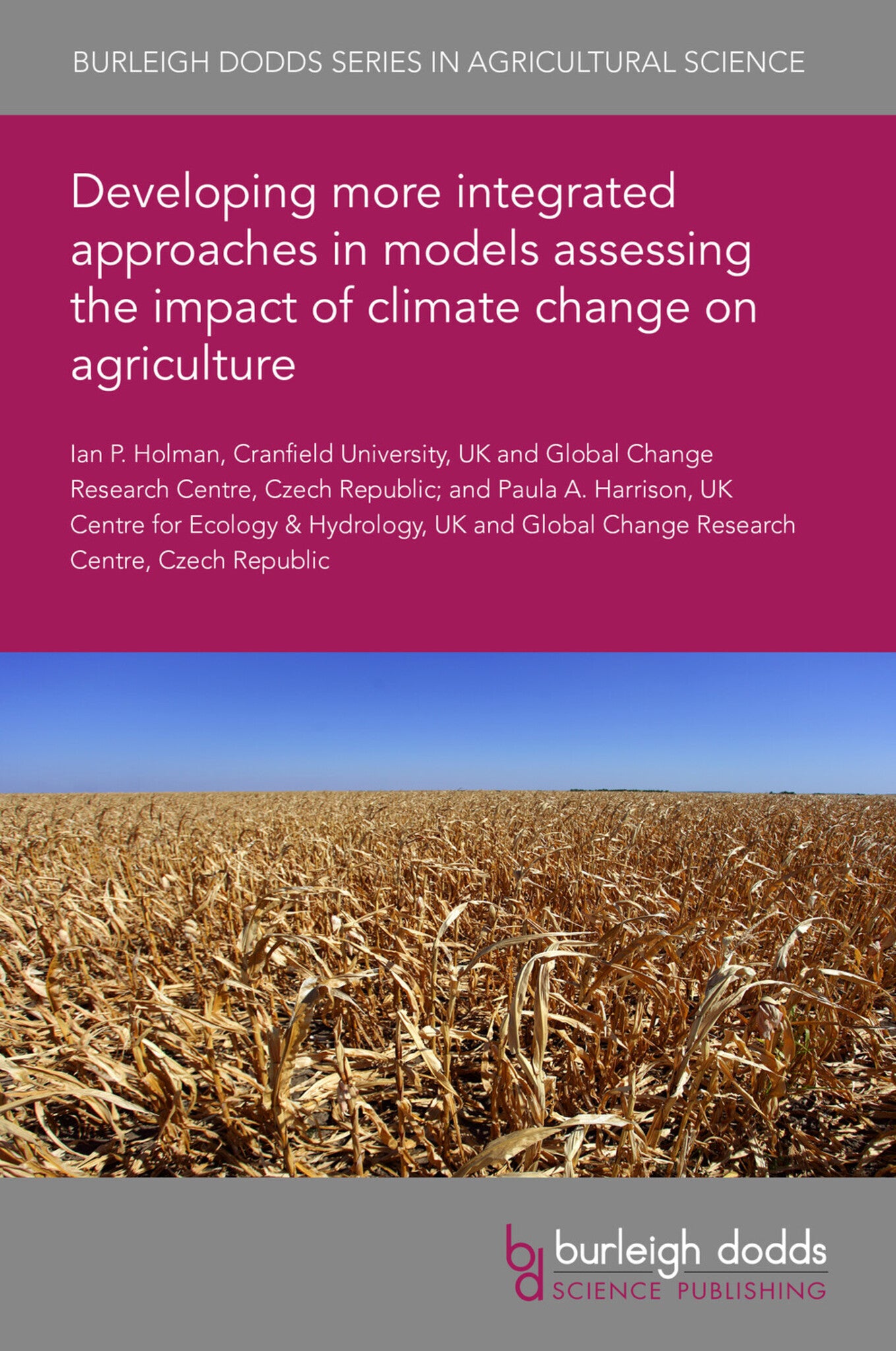We're sorry. An error has occurred
Please cancel or retry.
Developing more integrated approaches in models assessing the impact of climate change on agriculture

Some error occured while loading the Quick View. Please close the Quick View and try reloading the page.
Couldn't load pickup availability
- Format:
-
24 July 2023

Climate change impacts on agriculture will interact with those arising from socio-economic changes in complex ways. Understanding the consequences for agriculture requires an integrated (or holistic) modelling framework. Four key challenges in regional integrated modelling of agricultural systems are identified: (1) better characterisation of model structural uncertainty and its propagation through the modelled system; (2) improved representation of the importance of non-climate drivers on both the supply and demand sides of agriculture; (3) enabling adaptive capacity to be modified by evolving future socio-economic conditions; and (4) incorporating objective targets or goals for adaptation. Future integrated modelling studies that recognise both the uncertainty in climate and socio-economic change and the sensitivity of the uptake and effectiveness of agricultural adaptation options to socio-economic change will provide a more comprehensive understanding of the future challenges and opportunities facing agriculture and an improved basis for planning responses.

TECHNOLOGY & ENGINEERING / Agriculture / Sustainable Agriculture, Sustainable agriculture, TECHNOLOGY & ENGINEERING / Agriculture / Agronomy / Crop Science, SCIENCE / Global Warming & Climate Change, Agronomy and crop production, Climatology and climate modelling, Climate change, Agricultural science

- 1 Introduction
- 2 Addressing key challenges in integrated modelling
- 3 Case study
- 4 Conclusion
- 5 Future trends in research
- 6 Acknowledgements
- 7 Where to look for further information
- 8 References



